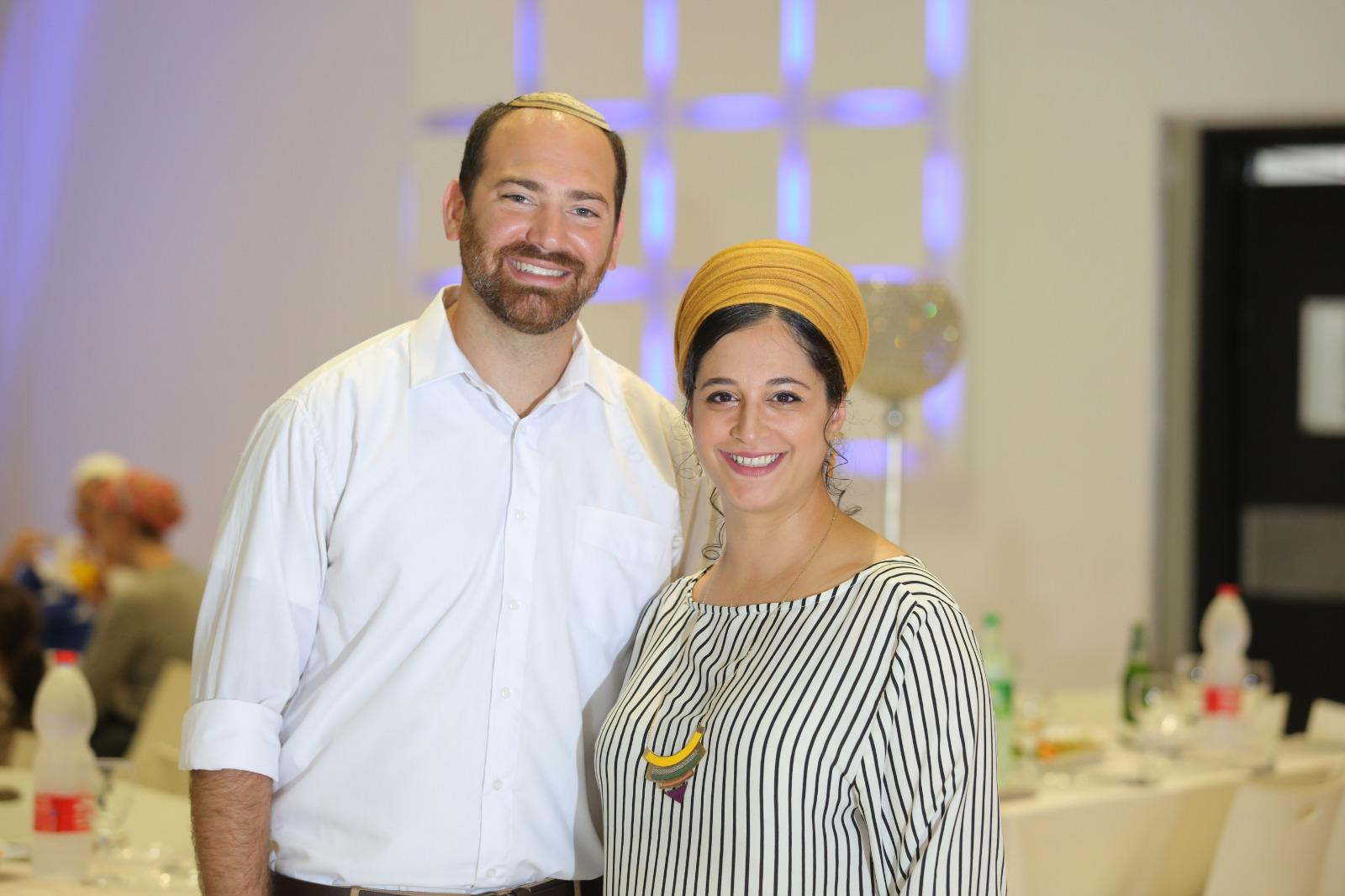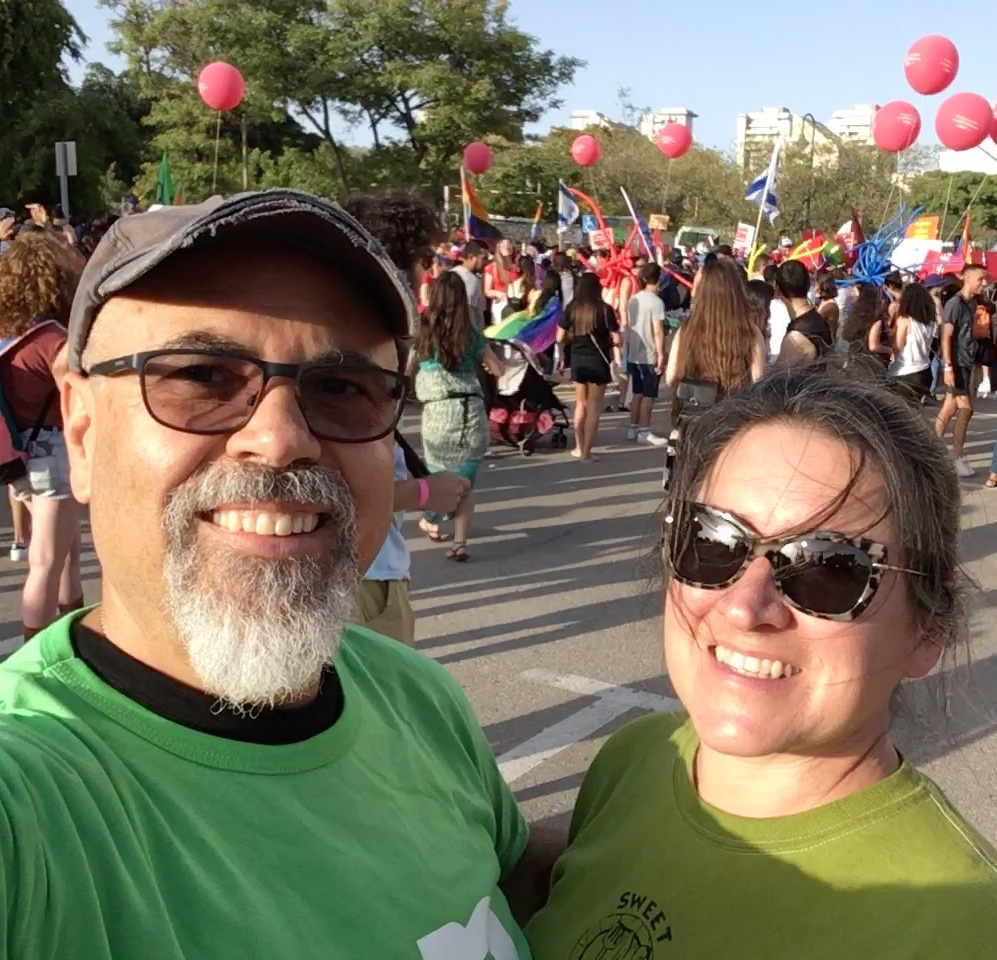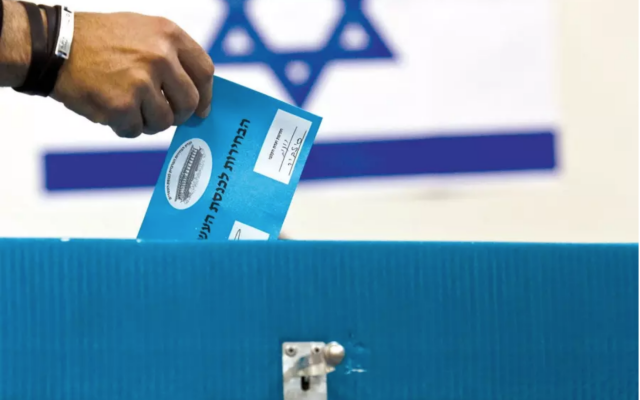Former Atlantans Ready to Vote for Second Time in 2019
With the second Israeli elections this year, Israelis in Atlanta and around the world are considering many factors before they vote.
In the last days of the do-over election campaign in Israel, former Atlantans now living in the country report being bombarded with text messages from all sides of the political spectrum, as well as from pollsters.
“The last round in April was worse, but I expect that to pick up in the final weeks,” said Jonathan Adler, who grew up in Atlanta before making aliyah. “Everyone is tired of it and just wants to get it over with. We’re ready to have a working government.”
Israelis went to the polls April 9, but subsequently Prime Minister Benjamin Netanyahu failed to put together a coalition government and convinced the Knesset – the Israeli parliament – to call for new elections.
So, for the first time in Israeli history, voters are being asked to vote for a second time this year, on Sept. 17. Meanwhile, several members of Netanyahu’s government – essentially cabinet members – have either been fired or resigned, and the Knesset isn’t meeting, so the business of the government isn’t advancing.

Unlike the April election, Israeli voters will have fewer parties from which to choose this time around. On both the right and left sides of the political spectrum, parties have forged alliances and mergers because the aim of the game is to create a coalition of at least 61 voting members, or a majority of the 120 Knesset members. Parties must receive 3.25 percent of votes cast in order to meet the threshold to sit in the Knesset. If a party receives fewer than that percentage – which equals four Knesset seats – those votes essentially don’t count.
No one is certain that the results of the September election will make it any easier for Netanyahu, or his main opponent Benny Gantz of the center Blue and White Party, to attain a majority of seats. Eyes remain on Avigdor Lieberman, the head of right-wing Yisrael Beiteinu Party, who refused to join Netanyahu’s coalition after the last election because of disagreements with ultra-Orthodox coalition partners and about who could be the kingpin again this time around.
Because there’s no precedent for a do-over election, pollsters are at a loss to predict whether voters will vote this time around. In Israel, election days are holidays, but that doesn’t mean Israelis are happy about it. Although some observers express concern over election fatigue, former Atlantans who were contacted are as determined as ever to vote. And while American Jews are mostly confused about the Israeli electoral process, those who made aliyah are carefully and strategically making their voting choices.
“I live in a split household,” Adler said. He plans to vote for Netanyahu’s party, Likud, while his wife plans to vote for Yemina, a right-wing party headed by popular politician Ayelet Shaked. Both of them want Shaked in a government headed by Netanyahu, but they are weighing how important it is for Likud to capture enough votes to be tasked with patchworking a coalition together versus making sure Shaked is in the government.
“I am not a political strategist,” Adler contended. He, like all Israeli voters, in effect, must figure out how to make each of their votes count exactly the way they want.
According to the August 2019 Israeli Voice Index, a monthly survey conducted by the Guttman Center at the Israel Democracy Institute in Jerusalem, only 27 percent of Israelis want a right-wing government led by Netanyahu. Almost twice as many prefer either a unity government led by either Netanyahu or Gantz, or a coalition led by the latter.

Former Atlantan Rabbi Adam Frank plans to vote as he did in April: for the Blue and White Party. “I consider myself a centrist. Blue and White has a chance to get the most mandates, but the question will be whether they can put together a coalition,” said Frank, who made aliyah in 2001. “I think we need new leadership,” he told the AJT, even though he believes Netanyahu has been strong on the economy, international relations and security. These are areas, he said, most Israelis care about. “But there’s enough I find problematic about Netanyahu” to vote against him, he said.
“I think he kowtows to the right-wing nationalists and ultra-Orthodox. He does what is in his own best interests. I believe he’s been involved in corrupt activity, as the indictments he’s facing claim. And he’s made poor decisions about Diaspora Jewry,” said Frank, who formerly led a Conservative synagogue in Jerusalem and is now an activist with two organizations. One challenges the monopoly of the ultra-Orthodox-dominated rabbinut and the other fights for animal welfare.
Frank said that if he were a betting man, he would bet that a Likud-led, right-wing government will result from the upcoming election, with Lieberman joining the coalition and the ultra-Orthodox parties bending to Lieberman’s priorities in exchange for staying in power. “I’m afraid this will happen. However, my great hope is that Lieberman holds out, Netanyahu can’t put together a coalition and there will be a unity government with Blue and White, but with a Likud that doesn’t include Netanyahu,” Frank said.

Former Atlantans Jim Lando and Leigh Winston, who go back and forth between Pittsburgh and Beersheva, are making a special effort to vote Sept. 17. They’ve been in Pittsburgh with family and only planned on returning to Israel after the holidays in October. “But I was pissed that my first vote as an Israeli in April was cancelled by Netanyahu,” said Lando, who worked as an epidemiologist at the Centers for Disease Control and Prevention while living in Atlanta. So, he is flying back to Israel just for a few days to vote.
He told the AJT that he was torn between voting for Blue and White and the left of center Meretz party in April, before choosing Meretz. This time around, he will “most likely vote for Democratic Union Party” which is a merger of Meretz, former Prime Minister Ehud Barak’s party, and former Labor Knesset Member Stav Shaffir. Israel “needs to be a place I want to live in,” he said.




comments